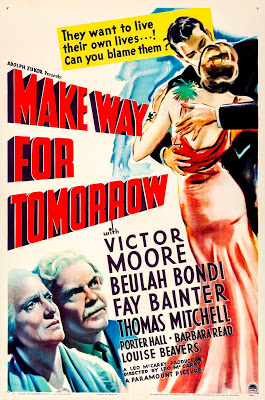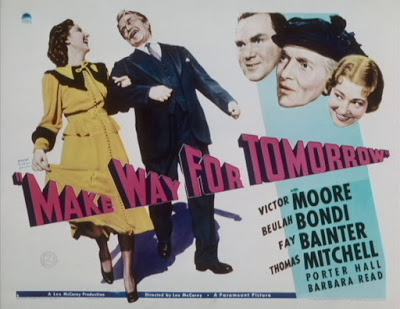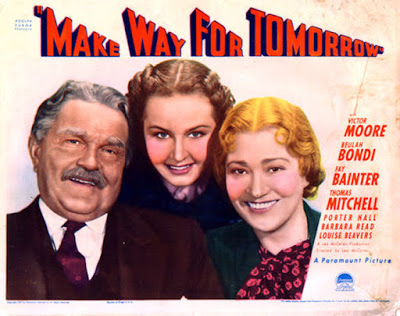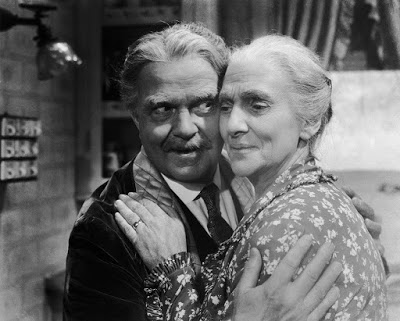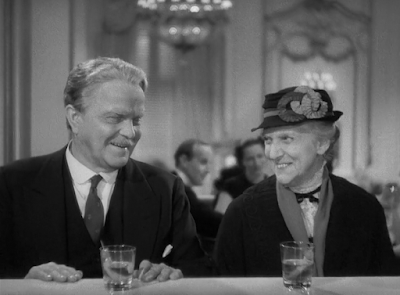Make Way for Tomorrow
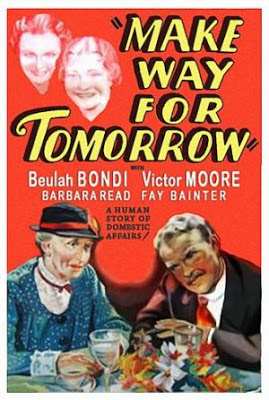
Director:
Leo McCarey
Year: 1937
Rating: 8.0
Leo McCarey directed
three of my very favorite comedies from the 1930s - Ruggles of Red Gap, Duck
Soup and The Awful Truth. Three brilliant comedies that are as different
from one another as night and day. The Awful Truth was released in 1937,
the same year as Make Way for Tomorrow, and McCarey won the Academy Best
Director for it. In his speech McCarey said "Thanks, but you gave it to me
for the wrong picture." The right film as far as he was concerned was this
one. It is not a comedy. It is now a nearly forgotten film - amazing in that
Orson Welles said "It would make a stone cry," and Errol Morris wrote "The
most depressing movie ever made, providing reassurance that everything will
definitely end badly." And critic Roger Ebert added it to his list of Great
Movies (all quotes gathered from Wikipedia).
